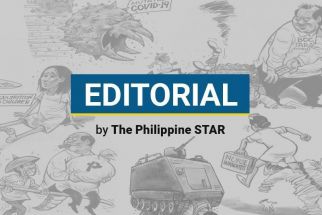Empowered

July 17, 2006 | 12:00am
It is true that the Comelec Chairman and Commissioners are impeachable officials; that they can be removed only on impeachment for, and conviction of, impeachable offenses mentioned in Section 2, Article XI of the Constitution. But it does not necessarily mean that they can not be criminally prosecuted while in office for their "illegal, imprudent, hasty and gravely abusive actions" in approving a resolution awarding the contract for automated election system to Mega Pacific Consortium and signing a contract with Mega Pacific eSolutions; or that they have to be impeached first before being criminally prosecuted; or that the Ombudsman has no jurisdiction to investigate them for such criminal liability.
Impeachment is a mode to remove them from office because of those illegal, imprudent and hasty acts. If the same acts amount to a crime, then the Comelec Chairman and Commissioners can also be criminally prosecuted for said acts. There is nothing in any law or jurisprudence which provides or declares that they cannot be criminally prosecuted while in office.
The only impeachable public official who cannot be criminally prosecuted while in office is the President. The President must be removed first by impeachment before he can be prosecuted for criminal acts committed during his incumbency. This is based on the principle of executive immunity from suit that was initially contained in the 1981 amendment to the 1973 Marcos Constitution impliedly carried over into the 1987 charter although its framers did not see a need to reenact it because of existing jurisprudence already recognizing it particularly the case of In Re Saturnino Bermudez (145 SCRA 160 [1986]). Indeed the Supreme Court in said case and in the subsequent case of Estrada vs. Desierto (353 SCRA 522 [2001]) expressly and clearly ruled that "incumbent Presidents are immune from suit or from being brought to court during the period of their incumbency and tenure".
This doctrine of presidential immunity is primarily rooted in the constitutional principle of separation of powers demanding the executive’s independence from the Judiciary; that the President should not be subject to the vagaries of judicial actions (It can also be said that by reason of this principle, Members of the Supreme Court cannot likewise be subject to executive investigation and prosecution while in office). Secondarily, the executive immunity is based on public convenience, to assure the exercise of presidential duties and functions free from any hindrance or distraction, considering that the Chief Executive is a job that, aside from requiring all the office holder’s time, also demands undivided attention (Soliven vs. Makasiar, 167 SCRA 393). Besides, public policy recognizes that without immunity the president would be disinclined to exercise decision making functions in a manner that might detrimentally affect an individual or group of individuals.
None of these logical bases can be said to be present in the case of the Comelec or other Constitutional Commissions. While they are independent bodies, they are not separate branches of the government within the contemplation of the principle of separation of powers. The same reasons of public convenience and public policy exempting the president from criminal liability while in office are not applicable to them because their duties and functions are not as encompassing and vital to the overall operations of the government. In fact these commissions were originally mere adjuncts of the executive department. So they cannot claim immunity from criminal prosecution while still in office like the president.
Indeed in the Mega Pacific case (supra) the SC already made a judicial pronouncement that the Comelec officials can be criminally prosecuted while still in office and that the Ombudsman has the power to investigate and prosecute them when it directed said Office to determine the criminal liability of those involved in the void, illegal and anomalous Resolution and Contract. Even in the earlier case of Estrada vs. Desierto (supra), this power of the Ombudsman has been confirmed by the SC when it declared that the 1987 Charter itself created and endowed said Office with "enormous powers, among which is to investigate on its own or on complaint by any person, any act or omission of any public official, employee, office or agency when such act appears to be illegal, unjust, improper or inefficient (Section 13 [1] Article XI).
If our Comelec Commissioners are not hiding anything regarding these anomalous deals, they should therefore just allow the Ombudsman to determine their criminal liability, if any, instead of taking the clearly untenable step of still questioning its jurisdiction.
E-mail: [email protected]
Impeachment is a mode to remove them from office because of those illegal, imprudent and hasty acts. If the same acts amount to a crime, then the Comelec Chairman and Commissioners can also be criminally prosecuted for said acts. There is nothing in any law or jurisprudence which provides or declares that they cannot be criminally prosecuted while in office.
The only impeachable public official who cannot be criminally prosecuted while in office is the President. The President must be removed first by impeachment before he can be prosecuted for criminal acts committed during his incumbency. This is based on the principle of executive immunity from suit that was initially contained in the 1981 amendment to the 1973 Marcos Constitution impliedly carried over into the 1987 charter although its framers did not see a need to reenact it because of existing jurisprudence already recognizing it particularly the case of In Re Saturnino Bermudez (145 SCRA 160 [1986]). Indeed the Supreme Court in said case and in the subsequent case of Estrada vs. Desierto (353 SCRA 522 [2001]) expressly and clearly ruled that "incumbent Presidents are immune from suit or from being brought to court during the period of their incumbency and tenure".
This doctrine of presidential immunity is primarily rooted in the constitutional principle of separation of powers demanding the executive’s independence from the Judiciary; that the President should not be subject to the vagaries of judicial actions (It can also be said that by reason of this principle, Members of the Supreme Court cannot likewise be subject to executive investigation and prosecution while in office). Secondarily, the executive immunity is based on public convenience, to assure the exercise of presidential duties and functions free from any hindrance or distraction, considering that the Chief Executive is a job that, aside from requiring all the office holder’s time, also demands undivided attention (Soliven vs. Makasiar, 167 SCRA 393). Besides, public policy recognizes that without immunity the president would be disinclined to exercise decision making functions in a manner that might detrimentally affect an individual or group of individuals.
None of these logical bases can be said to be present in the case of the Comelec or other Constitutional Commissions. While they are independent bodies, they are not separate branches of the government within the contemplation of the principle of separation of powers. The same reasons of public convenience and public policy exempting the president from criminal liability while in office are not applicable to them because their duties and functions are not as encompassing and vital to the overall operations of the government. In fact these commissions were originally mere adjuncts of the executive department. So they cannot claim immunity from criminal prosecution while still in office like the president.
Indeed in the Mega Pacific case (supra) the SC already made a judicial pronouncement that the Comelec officials can be criminally prosecuted while still in office and that the Ombudsman has the power to investigate and prosecute them when it directed said Office to determine the criminal liability of those involved in the void, illegal and anomalous Resolution and Contract. Even in the earlier case of Estrada vs. Desierto (supra), this power of the Ombudsman has been confirmed by the SC when it declared that the 1987 Charter itself created and endowed said Office with "enormous powers, among which is to investigate on its own or on complaint by any person, any act or omission of any public official, employee, office or agency when such act appears to be illegal, unjust, improper or inefficient (Section 13 [1] Article XI).
If our Comelec Commissioners are not hiding anything regarding these anomalous deals, they should therefore just allow the Ombudsman to determine their criminal liability, if any, instead of taking the clearly untenable step of still questioning its jurisdiction.
E-mail: [email protected]
BrandSpace Articles
<
>
- Latest
- Trending
Trending
Latest


























